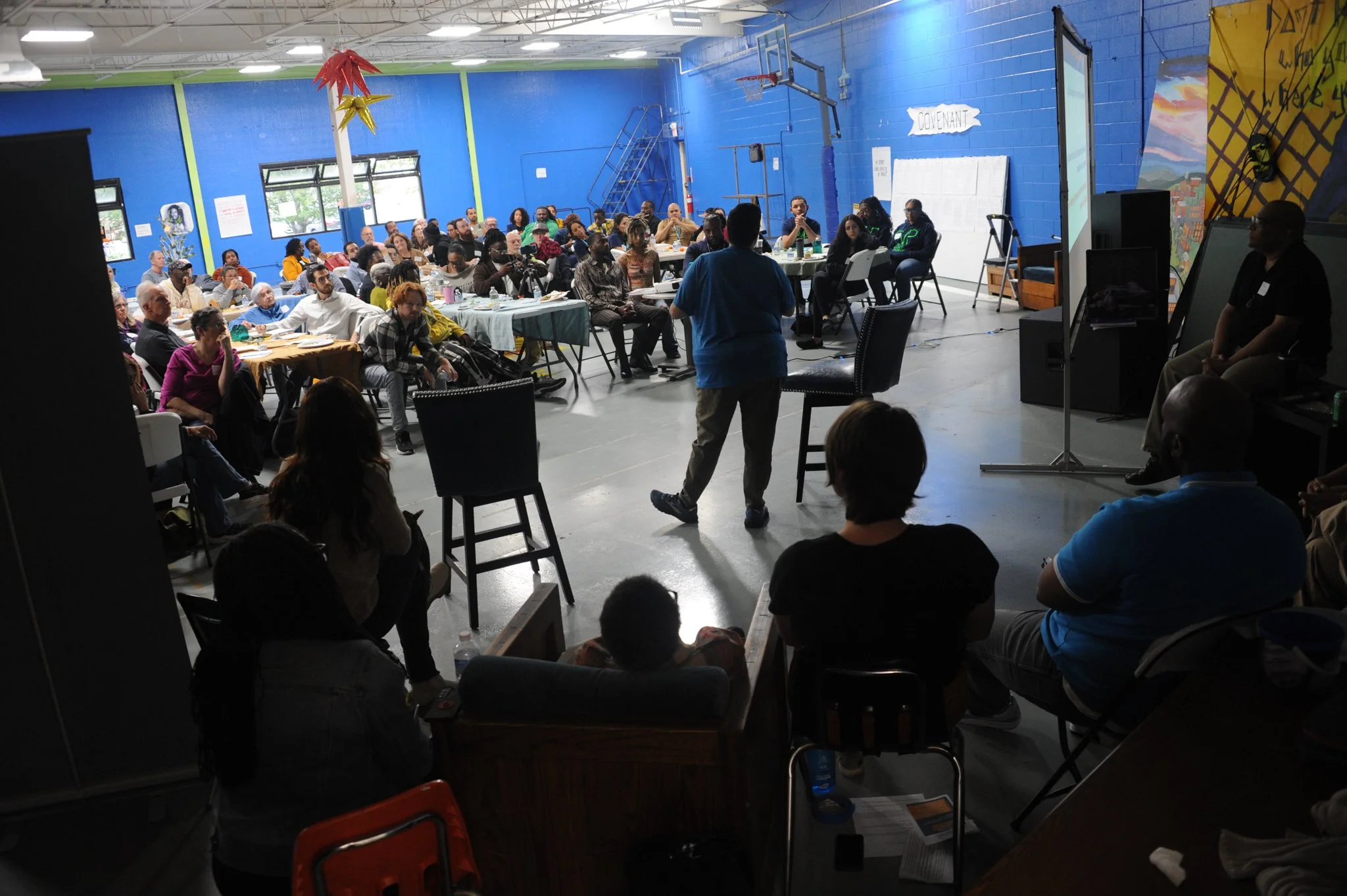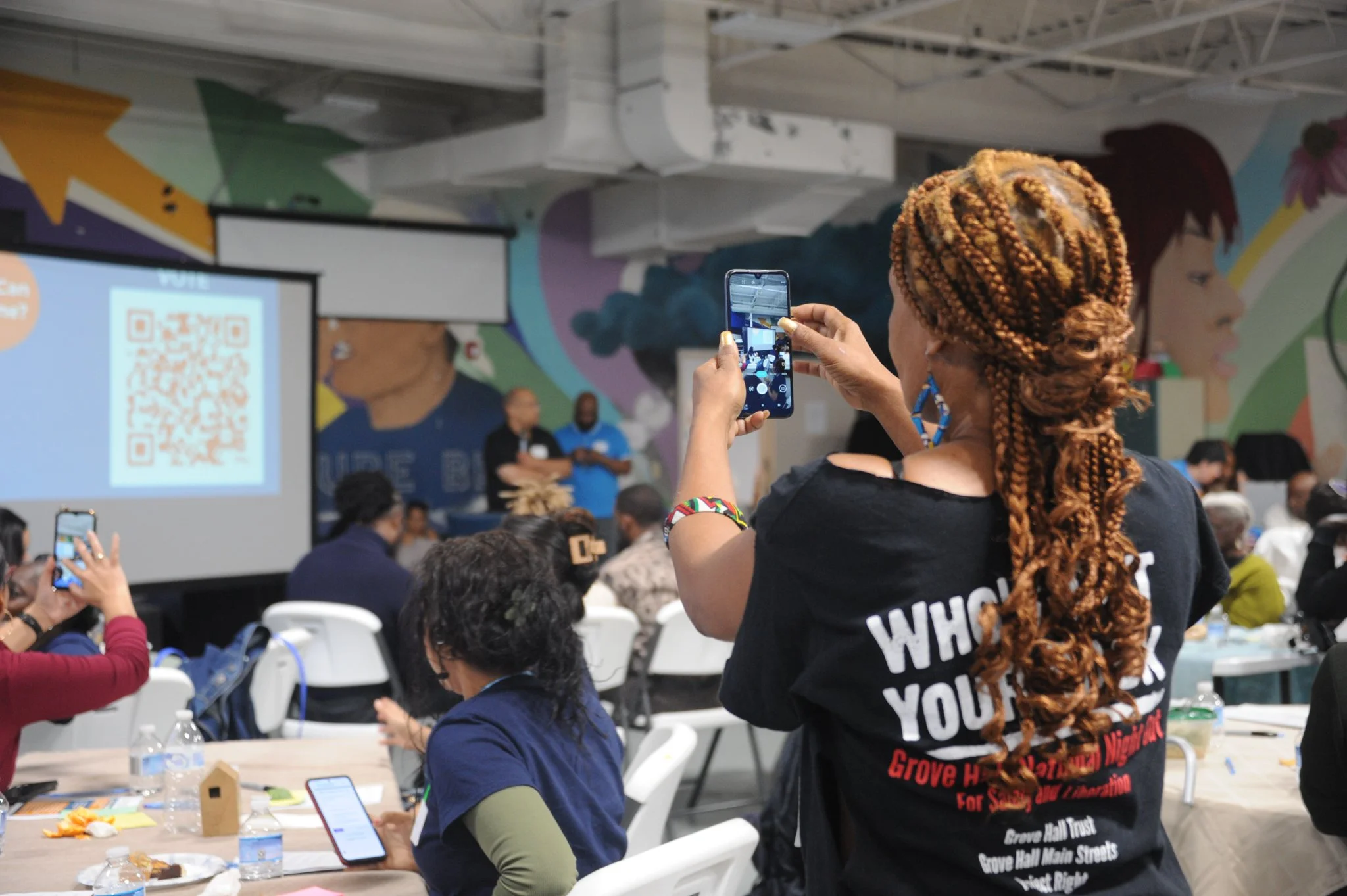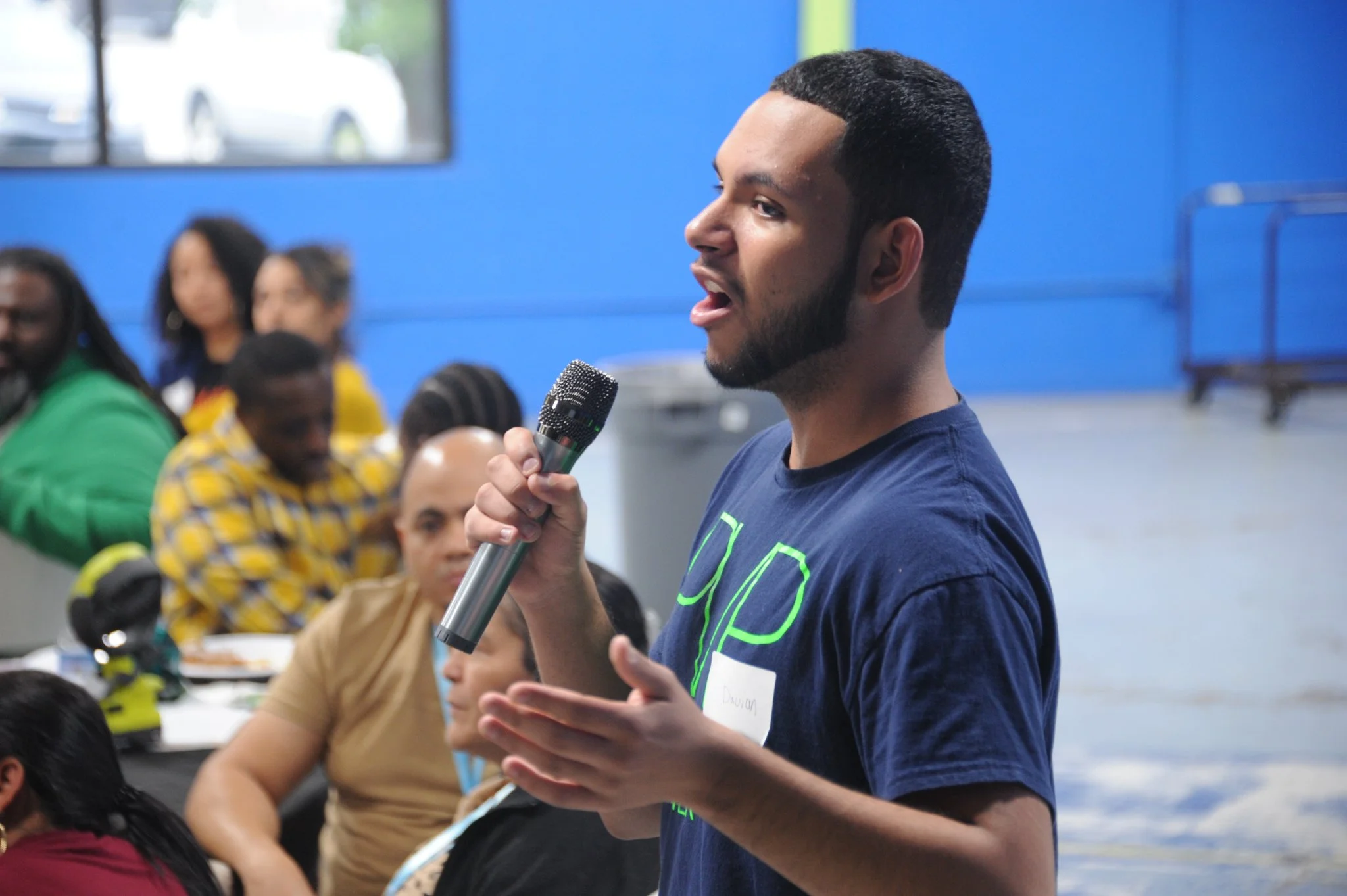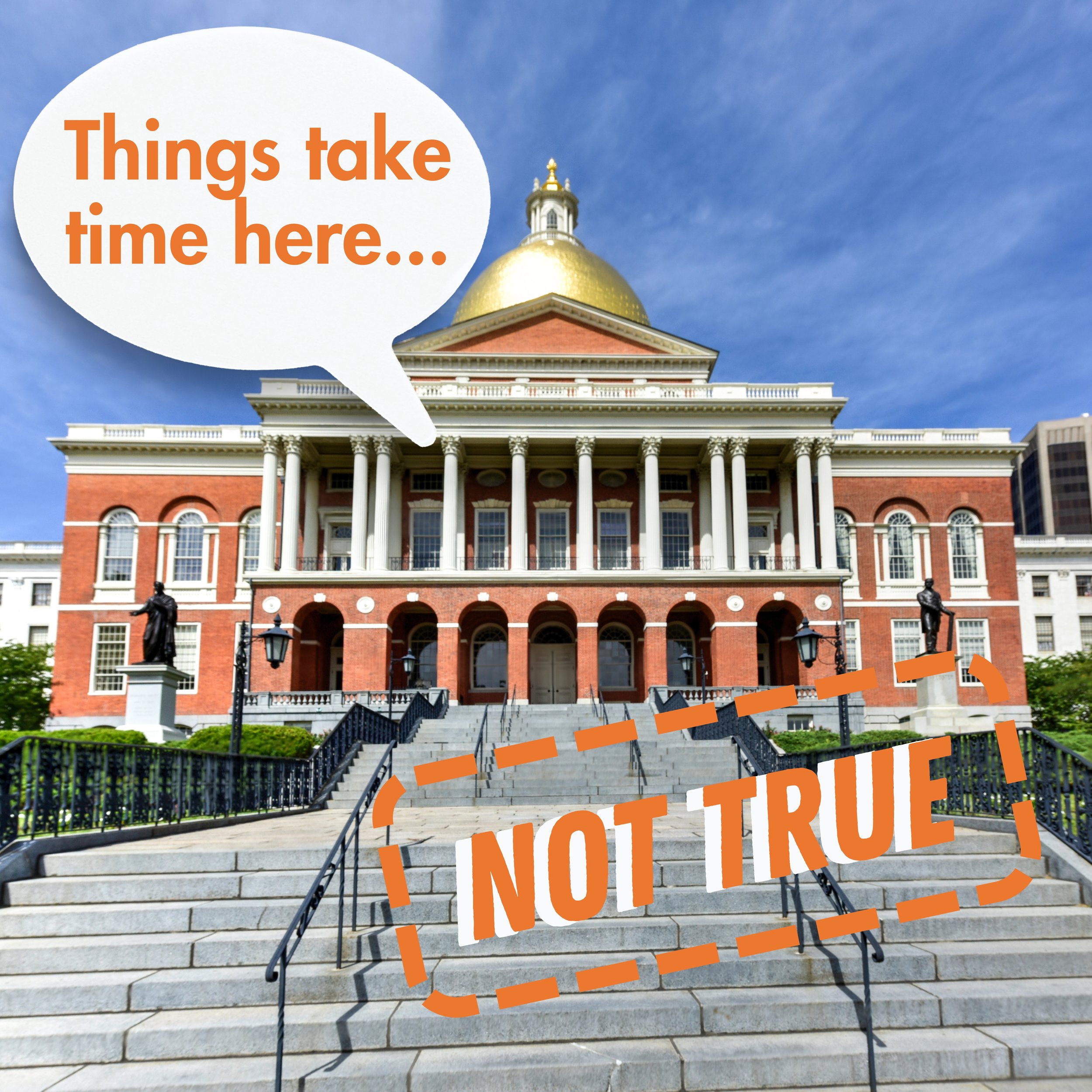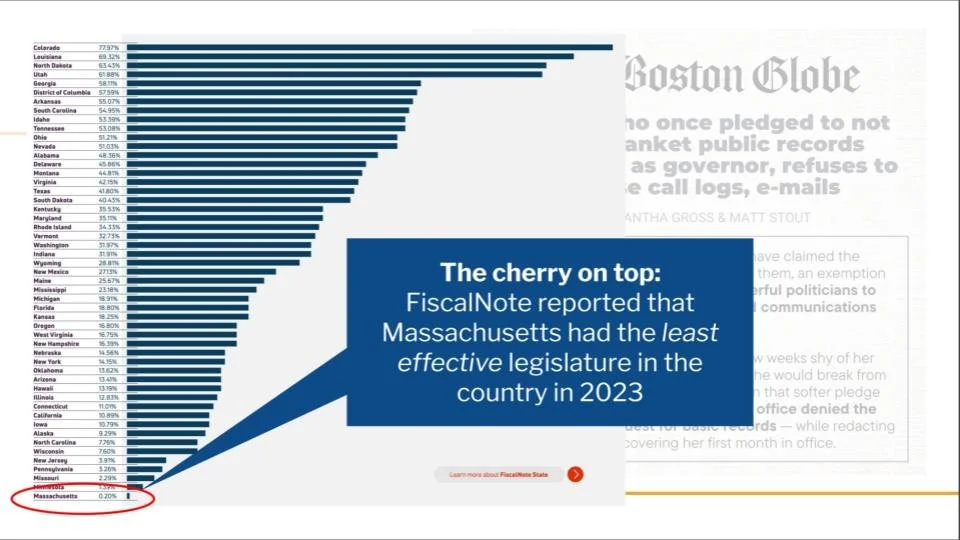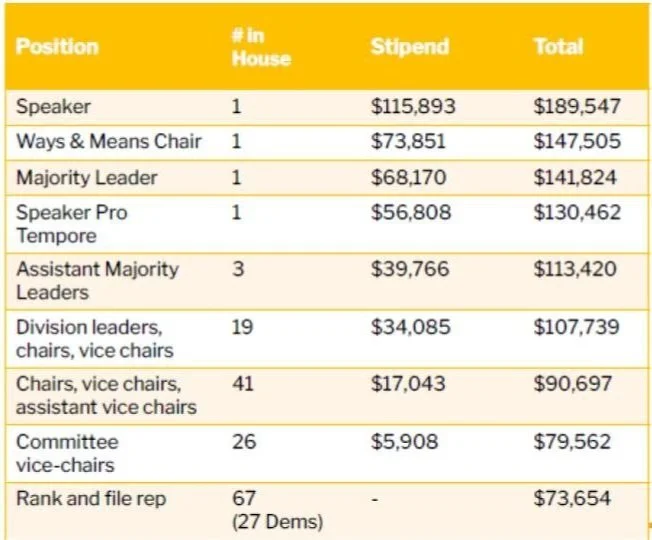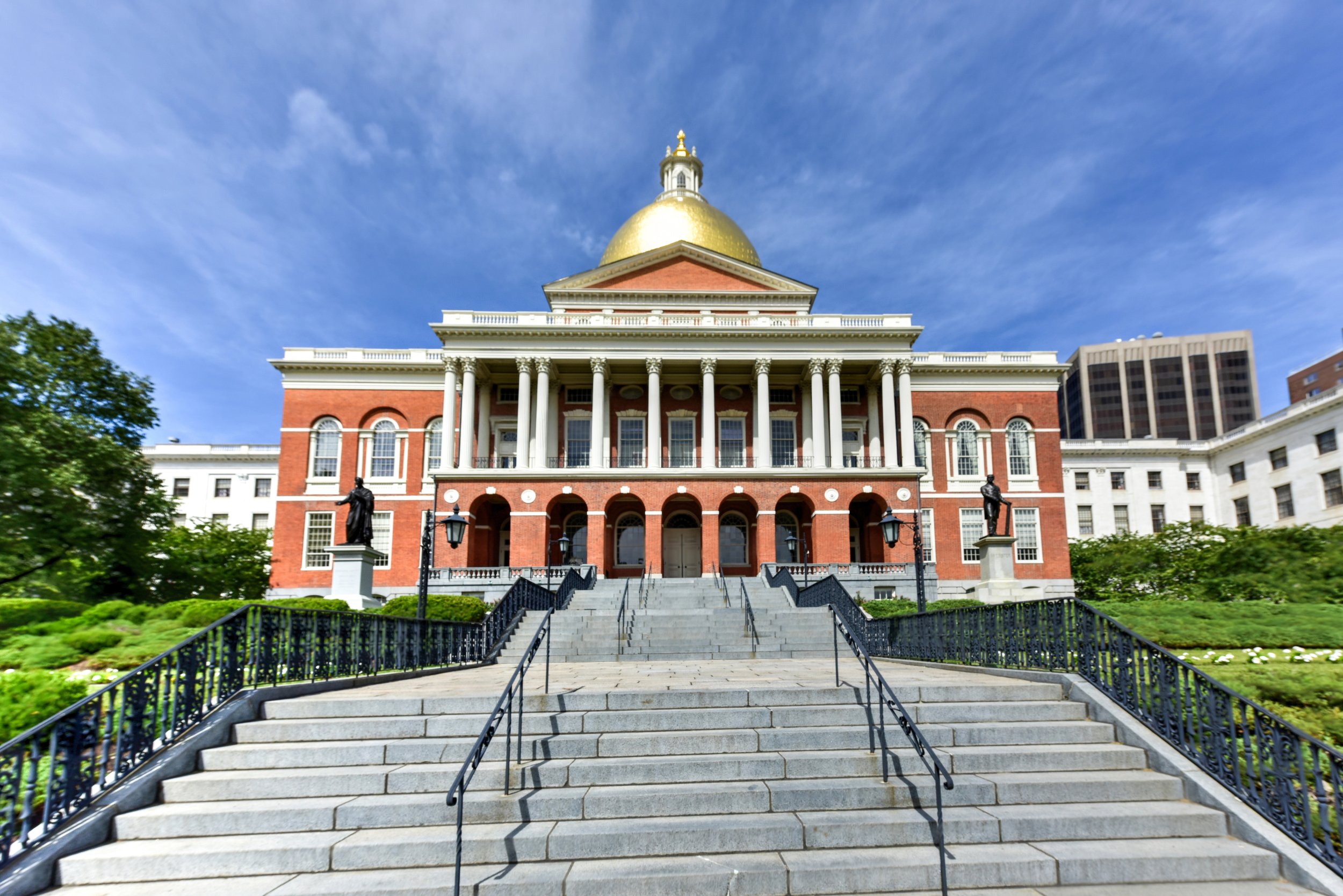
People’s Budget Committee
The state budget exists because of our financial contributions through federal and state taxes and MCAN’s People’s Budget Committee (PBC) is working to have a direct say over this incredibly important moral document. These dollars should ensure that everyone has access to shelter, food, healthcare (including mental health), and a thriving community, ensuring everyone’s needs are met.
The PBC represents people from across all classes and demographics. We want to explicitly name that we represent communities that are often left out - low income, Black, Indigenous, Latina, Latino & Hispanic and other people of color from the Gateway Cities (mid-sized urban areas across the state of Massachusetts) who have been marginalized and have faced lack of investment for generations.
At MCAN’s Path To Power statewide convening on September 29, 2024, the People’s Budget Committee detailed three paths to power by which MCAN leaders could make a long term impact.
People's Budget Committee member Tracy Albernaz from MCAN affiliate United Interfaith Action, backed up by the entire committee, presents the final of three options of ways in which the network could organize to impact the state budget.
Throughout the issue selection process, leaders, such as Mytia Vaughn from MCAN affiliate Prophetic Resistance Boston, cast votes via their phones and others, including Davian Pagan, a leader with MCAN affiliate Pioneer Valley Project, spoke in favor of the various options the network could take with the leadership of the People's Budget Committee.
Ultimately, the decision was taken to do the long term work of creating a community driven issues platform, while building enough people power to make those issues the priority for any and all elected officials.
HOW WE BEGAN
The passage of the Fair Share Amendment, known as the Millionaire’s tax and passed in 2022, happened because of several years of organizing by MCAN and our partners. But when it came to allocating the money for the purposes stipulated by the legislation (education and transportation), we were left out of the conversation.
This isn’t the first time we fought for new tax dollars and this isn’t the first time that others decided how the money got spent.
AND then the Governor passed a tax break for the wealthiest.The MCAN People’s Budget Committee began meeting in August 2023 to decide how we can have a say moving forward.
WHAT WE ARE UP AGAINST
When we ask why we don’t see more timely results out of the legislative actions at the State House, we are told “Things take time here.”
Yet we can be sure that when a person in power decides something needs to happen, it happens.
The stories of things taking so long at the State House don’t have to be true. WE DON’T HAVE TO WAIT.
It isn’t about following the rules. It’s ABOUT POWER.
WHAT WE’VE LEARNED SO FAR
Even though our State projects itself as one of the most progressive states in our country, when it comes to passing legislation we aren’t passing legislation that is supporting the needs of our communities.
HOW POWER IN MASSACHUSETTS SHOWS UP
Speaker of the House determines which bills (if any) get heard
We have an entrenched power structure in the state with the same people (or people connected to people) holding onto power
Our structure has cities set up needing permission from the state, such as:
Home Rule Petition - to pass many local bills
Rent control can’t be passed without state permission
State passed a bill saying that a Participatory Budget Fund cannot be approved without a Mayor’s permission
When a bill gets voted on, they don’t do a public roll call. That means that you don’t know how your elected official voted.
TEN PROBLEMS IN HOW THE STATE HOUSE FUNCTIONS
1. No Record of Votes (floor & committee)
2. Limited Information on the Website
3. “Sent to Study” is a euphemism for killing a bill
4. Committee Reports - no info!
5. Committee Hearings and Secret Committee Votes
6. Rapid Action (no time to read)
7. Vanishing Amendments
8. Vanishing Committee Assignments
9. Follow the Leader
10. One person has all the power
The Speaker of the House, currently Ronald Mariano, determines which bills (if any) get heard
He determines leadership roles, committee chairs and committee assignments
This is also connected to their salaries. (see above) No leadership means less money.
Controls amendment process
This video
sheds light on how the current system operates.
WHAT CAN BE DONE?
The People’s Budget Committee is bringing together leaders from across the MCAN network to explore and prioritize how structural change at the State House could begin. Your voice and experience is welcomed! To begin with, click here to share what is important to you when it comes to legislative accountability and budget prioritization.
PBC LEADERSHIP TEAM
The People's Budget Committee who led the research for this effort are pictured here from left to right: Organizer Vikiana Petit-Homme (I Have A Future), Leader Pam Herndon (Essex County Community Organization), Leader Rosie Gomez (United Interfaith Action), Leader Rev. André Bennett and Leader Helen Patmon (Essex County Community Organization), Leader Bil Gardiner (Worcester Interfaith), Organizer Tracy Albernaz (United Interfaith Action), MCAN Board Member Ashley Delva (I Have A Future), MCAN Co-Executive Director Janine Carreiro, MCAN Board Chair Pierre Osias led the covenanting portion of the event with MCAN Board Treasurer Renee Ledbetter (United Interfaith Action) (not pictured due to illness), and Leader Cindy Williams (Brockton Interfaith Community).

